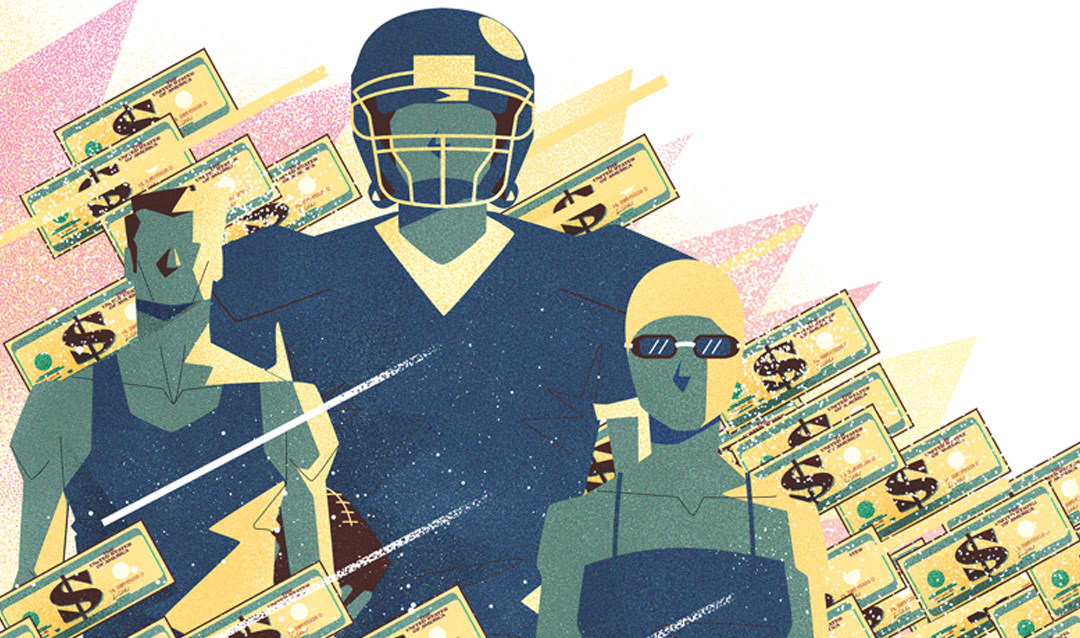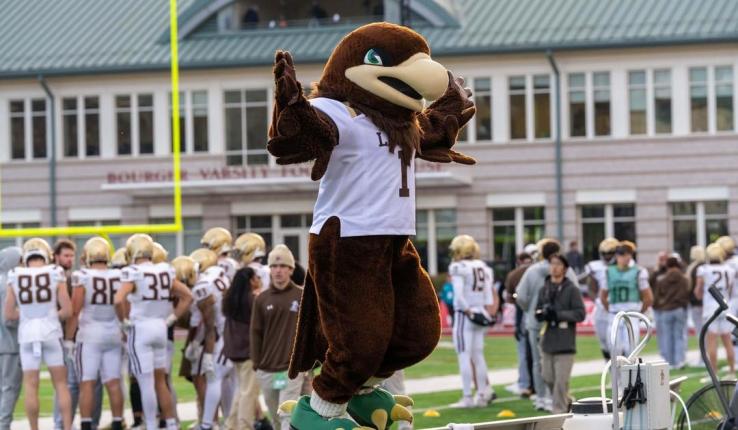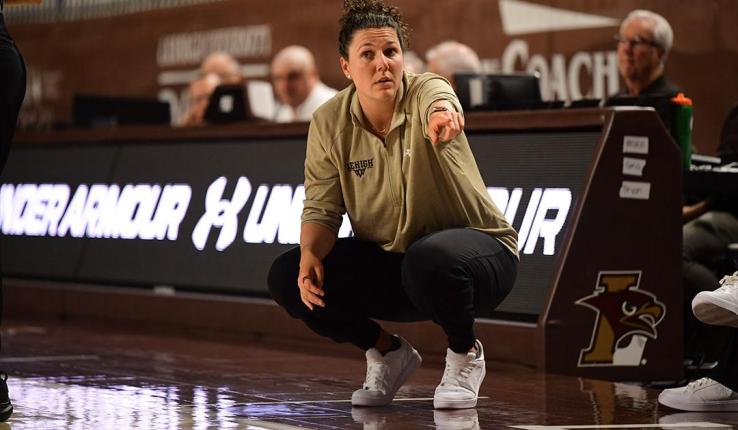On July 1, the NCAA changed its name, image and likeness (NIL) policy to allow athletes to profit off their name or image. That same day, Pennsylvania Gov. Tom Wolf signed legislation allowing college athletes within the commonwealth to sign endorsement deals and earn money. The law allows for the state’s college athletes to earn money through a number of avenues, including autograph sessions, endorsement deals and sponsorships. Joe Sterrett ’76 ’78G ’03P ’05P ’07P ’09P, the Murray H. Goodman Dean of Athletics and director of athletics at Lehigh, discusses the changes and their impacts on Lehigh’s student-athletes.
What do these changes mean for student-athletes?
Lehigh student athletes can now profit from thoughtful use of their names, images and likenesses and their entrepreneurial creativity and ambition. Importantly, it means that NCAA rules will no longer treat athletes differently from students who are not athletes, at least as regards to NIL and entrepreneurial opportunities.
Paying college athletes has long been debated. Are NIL deals a good compromise to allow college athletes a way to benefit monetarily?
Yes, and it’s a qualified yes. At some institutions, the visibility of athletes, of athletics, of certain teams, is atypical, unusual, and maybe even distorted in terms of the context of being at an institution of higher learning. They achieve this sort of celebrity status because of the investment that is made in sports, and a lot of that investment is motivated by commercial ambitions that those programs have. As a result, college sports programs at some institutions have become very large and expensive enterprises and have drifted away from the historical and presumptive core mission, which is an educational one of assisting young people to learn, grow up and develop as human beings through their sports experience.
An environment has been created at some of these campuses where these students have almost an artificial foundation of visibility and self-worth. Do they deserve a piece of that? Yes, but I would love to see NIL opportunities be connected more directly to their educational experience. I know that’s idealistic to say. There are schools right now where the visibility of a high profile athlete has resulted in that athlete being able to get a car from a car dealership for making promotional videos or having his or her picture be marketed by that group, and that’s only remotely connected to their status as a college student. On the other hand, if athletes develop a following through social media because of their creativity and engagement and strategic efforts to grow a base of followers and then utilize their network for the benefit of an external enterprise, why shouldn’t they have the ability to reap return for that? The skills associated with personal brand development are tied to academic development in a lot of ways.
Can compensation be better tied to education or an athlete’s own intellectual pursuits?
I think there are two concepts, though neither would likely be palatable in the short run because they’re significant changes in many ways. The least convulsive would be to allow federation of sports, which means providing the option of playing some sports at a level requiring less substantial investment, aiming to compete effectively, but not trying to outspend everyone else in order to win. This approach would provide athletes a chance to learn through the sports experience and still be competitive. That’s kind of where the Patriot League is, with a few sport specific exceptions in which competing within the league IS competing nationally. I think the federated approach to sports would be really hard for conferences to adopt, though it certainly would change the foundation for college sports.
The second idea is a more extreme version of federation, where you take whatever sports are the commercialized ones at your institution...where there are large stadiums or arenas, substantial ticket sales and in addition to winning, one of the goals is to generate money. Those sports are organized and managed to be commercially viable. Perhaps those sports should operate as for-profit subsidiaries of the university, with marketplace influences in effect. This approach would be a major and convulsive change, because schools do like operating under the educational umbrella with not-for-profit status. That status allows for paying far fewer taxes on all that income and it allows the ability to collect charitable gifts that are tax deductible to the donors. To this point, the structure in place has also not had to confront treating athletes as employees.
Overall, do you think this policy change is a step in the right direction?
Yes. Generally, our belief is that athletes ought to have the same opportunities that all students are provided, and not have athletes be excluded from opportunities that non-athlete students have simply because they participate in sports.
What restrictions are in place, regarding how Lehigh athletes can earn money through NIL deals?
There are restrictions defined by the Commonwealth of Pennsylvania requiring advanced reporting by athletes to their schools of possible NIL arrangements, and they prohibit certain areas of sponsorship or association such as gambling, alcohol, adult entertainment, tobacco, prescription pharmaceuticals or controlled substances. Athletes cannot engage in “pay-for-play,” and other NCAA rules relative to direct engagement with identified “Boosters” are still precluded.
While this can create opportunities for student-athletes, there are potential issues. What are some concerns?
I suppose one concern is the potential for an athlete making a decision for the short term (and perhaps even with small-scale impact) that has lasting negative repercussions. We want to help our athletes think through the possible implications of their NIL decisions on future job or advancement opportunities.
Some schools have partnered with organizations that help facilitate sponsorships. Are there opportunities to partner with faculty members or academic programs?
We haven’t yet engaged in any external partnerships aimed at providing specific opportunities for our athletes. However, we have provided our athletes with an app (INFLCR) that offers lots of educational information, a mechanism for submitting NIL requests and access to athletics photo images for their use in personal branding—whether they are engaged in an NIL deal or not. We do believe that the Baker Institute for Entrepreneurship, Creativity and Innovation, as well as some other coursework offered by faculty at Lehigh, can provide our athletes with useful guidance regarding personal branding, imaging, marketing and entrepreneurship, all of which are relevant beyond the scope of NIL opportunities.





